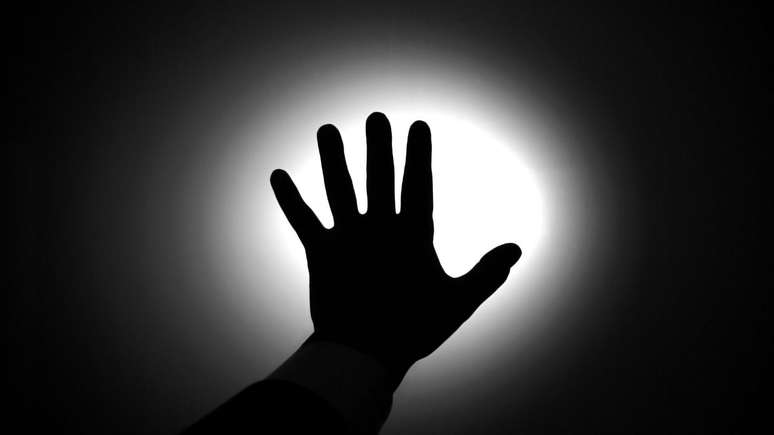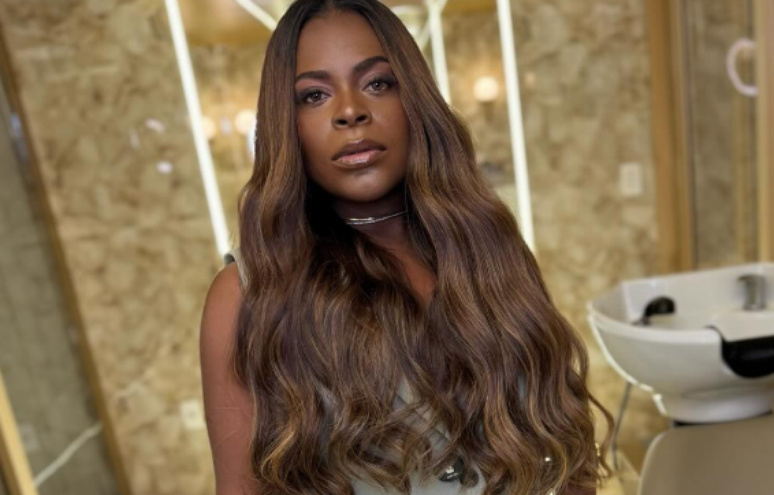-
An issue that involves coexistence between people and that always worries is the so-called toxic relationship. How to identify the signs of an abusive relationship? How to avoid it? In BBB 23, in fact, a case attracted attention and had repercussions: the relationship between Gabriel Fop and Bruna Griphao.
Photo: Freepik/Flipar
-
In a conversation, Bruna said that the man in the relationship was her. Gabriel then replied: “But now they’ll elbow you in the mouth.” Presenter Tadeu Schmidt then scolded the participant live.
Photo: Instagram / Flipar reproduction
-
“I’m here to warn you before it’s too late. Those involved in the relationship may not even notice, but those on the outside can see when the boundaries are about to be seriously crossed. In a romantic relationship, certain things cannot be, he said, even a joke,” warned Tadeu.
Photo: TV reproduction Globo / Flipar
-
Now consider the ingredients that psychologists and behavioral analysts say characterize a problematic relationship. A controlling person, for example, tries to determine what the other can or cannot wear, talk to, eat, and even do with his or her money.
Photo: pexels / Flipar
-
Another sign of an abusive relationship is verbal aggression, with the use of words that affect self-esteem, such as “fat”, “ugly”, “old”. This can also generate anxiety and depression.
Photo: pexels / Flipar
-
Verbal aggression, unlike physical aggression, leaves damage to the mental well-being and not to the body. In fact, physical aggression is a crime in Brazil.
Photo: pexels / Flipar
-
Also in this direction are threats that cause devastating emotional and psychological effects. There are threats of accusations (often unfounded) and of ending relationships, among other things.
Photo: pexels / Flipar
-
It is also common for the abuser to demand that the victim not meet family and friends simply because the abuser does not want to, either out of simple dislike or jealousy.
Photo: pexels / Flipar
-
According to experts, phrases like “if you go out with your friends it’s because you don’t love me” are an example of a threat. This is the famous emotional blackmail.
Photo: Freepik/Flipar
-
Financial abuse, a form of psychological abuse, is also common in this type of relationship. The abuser wants to control the victim’s spending, but also wants to borrow money and not pay it back.
Photo: Freepik/Flipar
-
Threats can precede “punishments” such as silence and disappearance. This position tends to make the person feel wrong and guilty, for something they didn’t even do.
Photo: Freepik/Flipar
-
Along these lines, it is common for victims to stop doing what they want for fear of their partner’s reaction, such as losing their loved one.
Photo: Freepik/Flipar
-
A toxic relationship tends to have a lot of criticism, some constructive, but mostly destructive, which shakes the victim’s self-esteem.
Photo: Freepik/Flipar
-
In this sense, another characteristic is the lack of support. The victim asks for help, but it is not reciprocated.
Photo: Freepik/Flipar
-
Excessive jealousy is one of the characteristics of an abusive relationship. There is so much jealousy that even people outside the relationship can notice it. This can also damage the self-esteem of the victims, who think they are making a mistake and give them room to believe in betrayal.
Photo: Freepik/Flipar
-
So what often happens is the lack of honesty in the relationship. Often the victim is also dishonest, afraid of the aggressor’s reaction.
Photo: Freepik/Flipar
-
Another serious thing is that the person asks the victim to provide the passwords of their social media, as well as devices such as cell phones and computers.
Photo: Freepik/Flipar
-
Leaving a toxic relationship seems easy, but when there are many threats and psychological torture, the victim does not realize that the mistake is not his. The first step is to question your mental health and realize that the relationship is not doing you any good.
Photo: Freepik/Flipar
-
In some cases, such as threats and even physical attacks, it is essential to go to the police station and report the incident. It is also important that if you notice that you are having these oppressive attitudes, you immediately stop doing them. If you have any doubts, talk to your partner.
Photo: Freepik/Flipar
-
It is worth remembering that, although cases involving abusive men are more publicized – and certainly more common – there are also cases in which the woman is responsible for the toxic side of the relationship. There are even women who go so far as to kill or order the death of their partner.
Photo: Image by Steve Watts from Pixabay / Flipar
To share
Source: Terra
Ben Stock is a lifestyle journalist and author at Gossipify. He writes about topics such as health, wellness, travel, food and home decor. He provides practical advice and inspiration to improve well-being, keeps readers up to date with latest lifestyle news and trends, known for his engaging writing style, in-depth analysis and unique perspectives.







